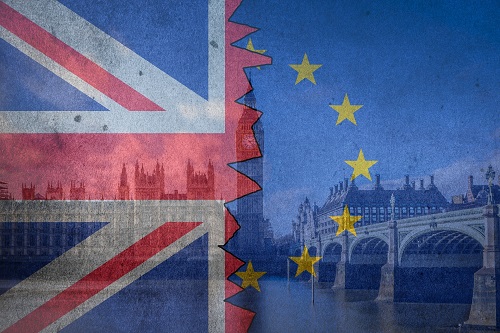By
Tom Arms
Sherlock Holmes offered the solution to the current Brexit conundrum admirably when he told Dr Watson in the Beryl Coronet: “when you have excluded the impossible, whatever remains, however improbable, must be the truth.”
At the moment the two possibilities before parliament are the deal negotiated by Prime Minister Theresa May and crashing out with no deal whatsoever. The latter would be the result of the rejection of the first if no plan B, C or D appears on the political horizon.
The first possibility will be rejected by parliament because it turns what used to be imperial Britain into a colony of a Europe dominated by historic enemies France and Germany. The United Kingdom would be indefinitely tied to the EU and yet left without any say in the rules that govern it. Its ability to strike trade deals with other countries would be severely hampered and Northern Ireland would be effectively hived off. In return, the UK would regain control of its immigration policies.
We will call this deal Option One and, using the Holmes formula, rule it out as it is impossible that parliament will approve it. So we move to Option Two, a no deal Brexit. First the plus side: Immigration is controlled. Trade deals can be negotiated. Payments to the EU are stopped. The European courts cease to have jurisdiction in Britain. Now the negatives: The economy will shrink by up to nine percent overnight. Hundreds of thousands of jobs will be lost as foreign companies move operations to EU countries. The pound will collapse. Inflation will rise. Troubles could restart in Northern Ireland and tariff barriers would go up between Britain and its main trading partners on the continent. MPs would, in effect, be voting to make every single one of their constituents substantially poorer.
The only members of the House of Commons likely to consider Option Two are the members of the European Research Group. They total 62 out of 650 MPs. In fact, an overwhelming majority of the House of Commons—450—voted to remain in the EU in the 2016 referendum. So Option Two can be placed firmly into the impossible box.
Having knocked out the two possibilities currently on the table we have to start looking for the improbable Plan B, C or D. The one that appears to be gaining ground at the moment is that the government accepts that leaving the EU was a bad idea; the referendum was a mistake; Brexit should be cancelled and we should return to the European fold with a renewed determination to bend the supranational body to the British will. This is Option Three. It would tear both the Conservative and Labour parties apart, further exacerbate divisions within the country at large, create a constitutional crisis and destroy any remnants of faith in British political leaders as both parties have pledged to accept the results of the referendum.
But, using the Holmes formula, this improbable scenario appears at the moment to be the most likely final result. The problem is, how to persuade a large proportion of the British population that this is the case. The best way is to let them reach this conclusion on their own. Brexiteers are convinced that a better deal is out there. It just needs tough talking British negotiators to put the Eurocrats in their proper place. Britain needs to go back to the negotiating table, if need be with a completely different government. It needs to bang its head against the Brussels brick wall again and again and again. It needs to prove that the unpalatable and improbable Remain option is the only option. They need to be able to say to the British public: We did our best—and then a helluva lot more. And then maybe, just maybe, the British public will accept remaining in the EU.
Tom Arms
I am a journalist, entrepreneur and historian with extensive experience in print, web and broadcast journalism. I started as a diplomatic correspondent, wrote several books (The Falklands Crisis, World Elections On File and the Encyclopedia of the Cold War), and then in 1987 started my own business (Future Events News Service, www.fensinformation.com) which over 25 years established itself as the world and UK media’s diary. Our strapline was: “We set the world’s news agenda.” I sold FENS in December 2012 but retained the exclusive broadcast rights to all of FENS data. To exploit these rights I set up LookAhead TV which produces unique programmes which “Broadcasts Tomorrow Today” so that viewers can “Plan to Participate.” LookAhead has appeared regularly on Vox Africa, Radio Tatras International, The Conversation and Voice of Africa Radio.
In addition to being a syndicated broadcaster and columnist on global affairs, Tom is also available for speaking engagements and can be contacted on Twitter, Linkedin and email: [email protected].



No Comments Yet!
You can be first to comment this post!